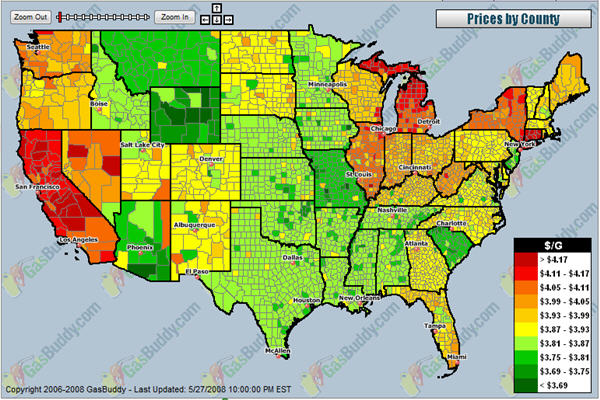Stratfor reports that car-loving Americans drove 11 billion fewer miles in March than they
did a year earlier. The 4.3 percent decline is the first year-on-year decline since the
1979 oil shock, and the sharpest decline ever. From: A Record-Setting Change in Driving Habits. Zogby says behavior is changing because of demand elasticity (big words for drive less if it costs more).
Oil prices have hit new highs and other commodity prices remain high. Obviously this is having an economic impact; but we should start seeing political and geopolitical impact. The first signs will be internal unrest and serious economic dislocations. The second will be interstate competition for resources.
From a trader's perspective, it is important to determine whether oil is topping in price. One aspect of that is the amount of oil at sea in tankers. Stratfor reports that tanker rates surged recently, but not consumption. Oil holders, at highs, put their cargo on ships to try to time their sale on the spot market. When a lot of people do that there is a hidden overhang of supply. Something to think about.
From a consumer's perspective, I'm amazed how often I hear people talk about the price of gas. Here is an interesting way to compare prices.

GasBuddy has other features as well. For example, here is a link to the lowest price found in Dallas.
